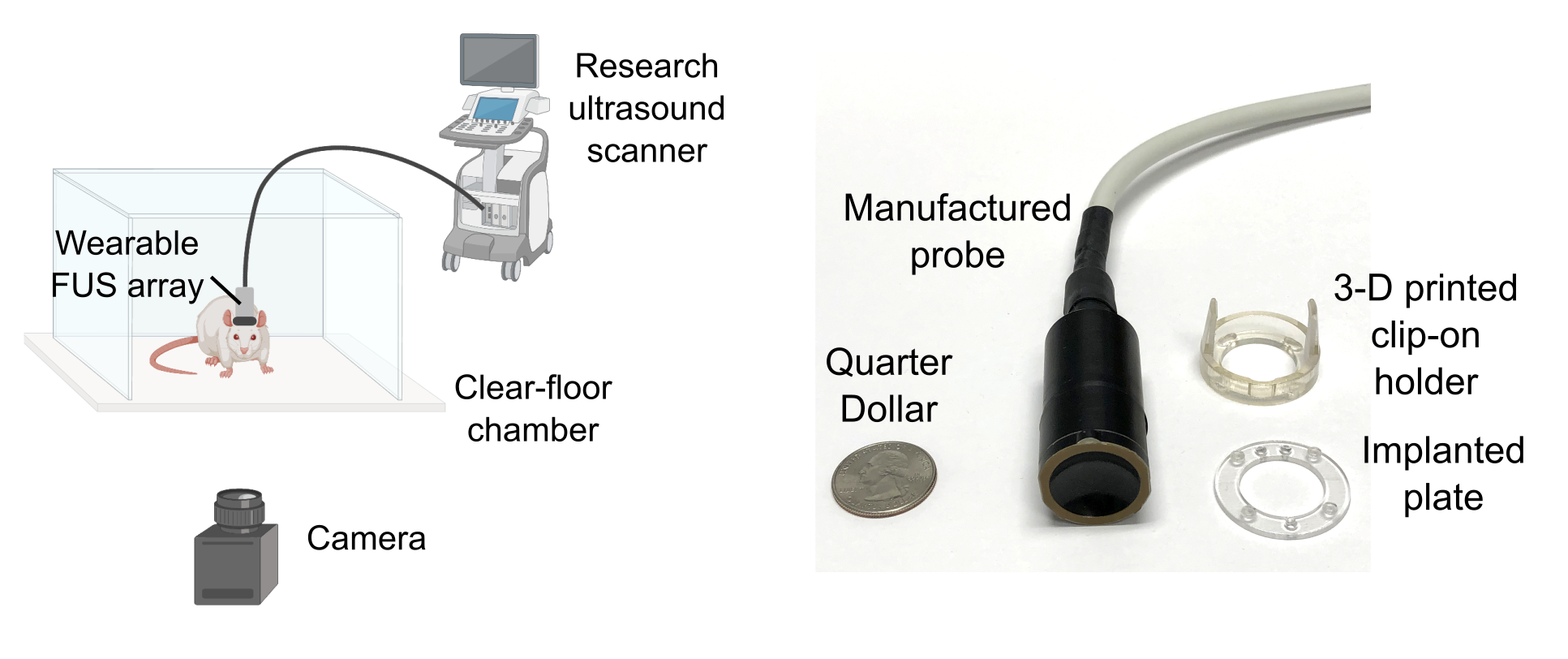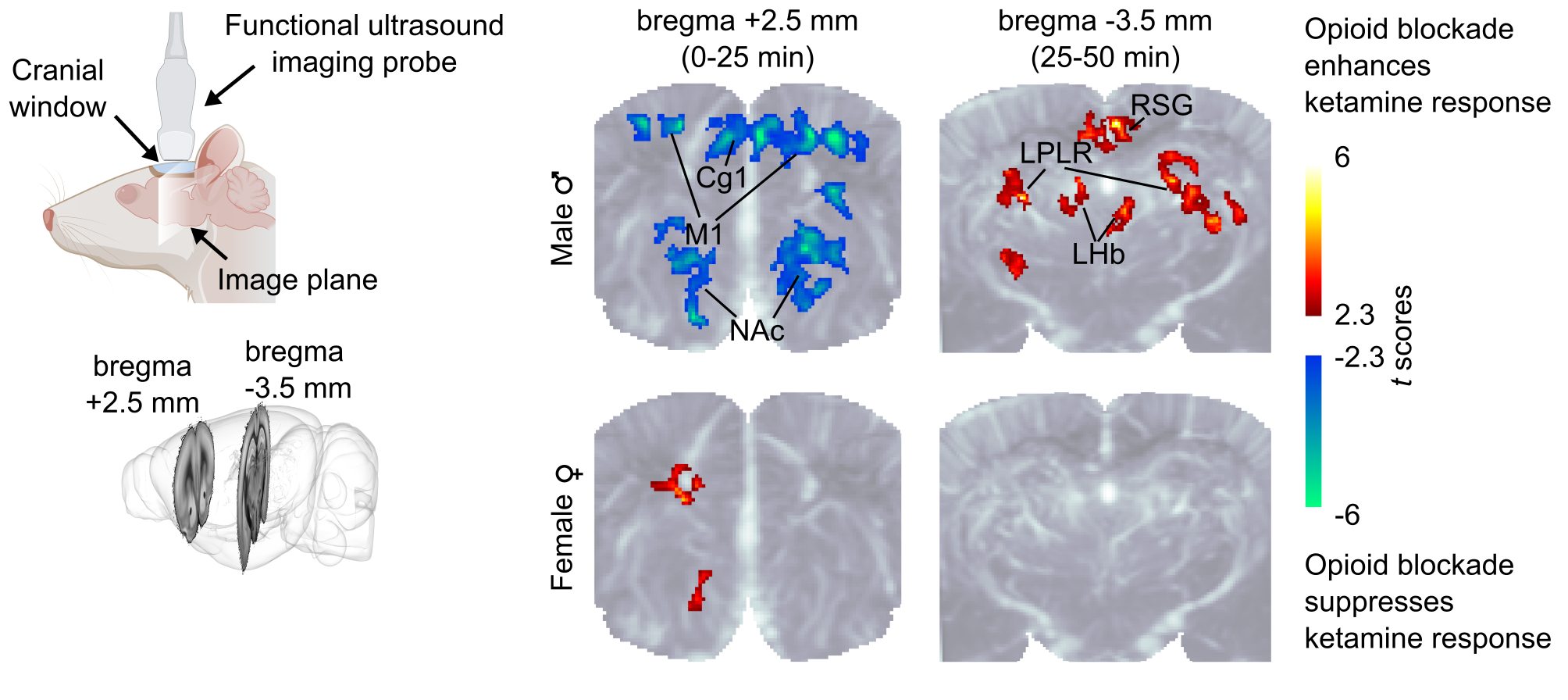High-throughput focused ultrasound neuromodulation

Transcranial ultrasound neuromodulation is a promising therapeutic tool for the noninvasive treatment of neuropsychiatric disorders. However, the expansive parameter space and difficulties in controlling for peripheral auditory confounds make it challenging to identify ultrasound sequences and brain targets with potential therapeutic efficacy. We develop miniaturized wearable ultrasound systems to enable high-throughput testing of brain targets and acoustic parameters in clinically relevant behavioral models. Our systems facilitate the design and clinical translation of ultrasound sequences for neurostimulation and targeted drug delivery.
See our paper here.
Whole-brain functional neuroimaging in freely behaving rodents

We use cutting-edge technologies like whole-brain functional ultrasound imaging, electrophysiology, immunohistochemistry, and optical methods to study the mechanism of action of drugs and other neuropsychiatric interventions. With this work, we aim to identify noninvasive and clinically translatable biomarkers to accelerate the development of closed-loop, image-guided therapies.
See our publications about sex-dependent neural responses to subanesthetic ketamine here and here.
Deep learning-based functional ultrasound imaging of the brain

Functional ultrasound imaging (fUSI) is an exciting modality for whole-brain neuroimaging in freely behaving rodents. However, conventional fUSI implementations generate very large data throughputs, posing significant challenges for real-time processing and visualization. We develop deep learning methods for fUSI reconstruction that allow reducing the resources needed for data acquisition and processing by up to 95% while preserving the original image quality.
For further information, read the paper here. Code and test data sets are available here.